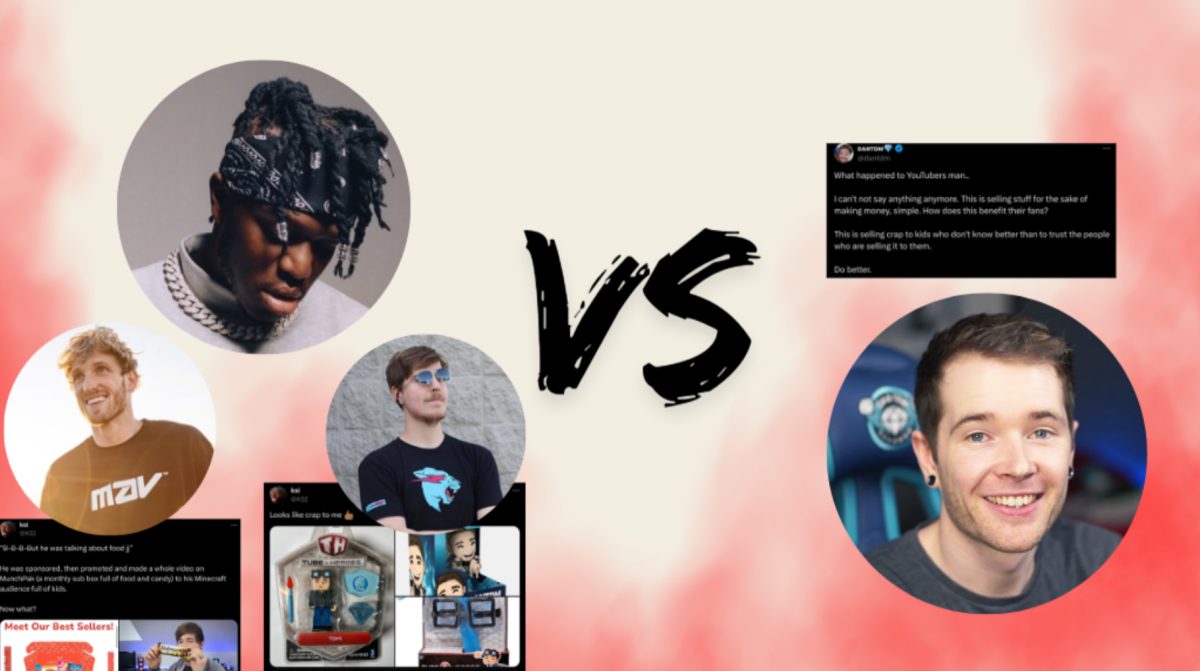Many of those are familiar with the catchphrases from Tina Fey’s 2004 classic “Mean Girls,” such as “fetch,” and “On Wednesdays we wear pink.” The movie obtained over $130 million and won several awards, including the 2005 MTV Movie & TV Award for Best Breakthrough Performance, Best Duo, Best Female Performance, and more, being looked upon by many defining the movie in the 2000s era. While some phrases didn’t stick, “Means Girls” certainly remains in the minds of countless people. It focuses on Cady Heron, a new transfer student from Africa to North Shore High School. She finds herself in a new environment and explores the high school experience, encountering the hierarchy that divides the school. Soon enough she finds herself involved with the most popular group, the Plastics that changes their lives forever.
Although the Plastics are a clique of popular girls, Regina George is the most confident and meanest of the rest of the group, Gretchen Wieners and Karen Smith. She is also the most self-conscious as she uses “mean” to prey on the more hesitant and afraid down to fuel her confidence. The movie connects that part of her personality to the idea of the desire for power and dominance in society and shows an example of an outcome of it. With a serious message, the movie was able to comedically incorporate it without the basic cliché messages for teens. In the end, the acts of criticism to gain power never really helped anyone, it just brought more unnecessary hate.
Before meeting the Plastics, Heron meets Janis Ian, one who despises Regina George, the leader of the Plastics, and Damian Leigh. A plan is created to get back at Regina from her past with Ian, but Heron is hesitant because Regina didn’t seem as bad as people said she was. The idea of inclusivity may have clouded her mind because she began to enjoy having a group and began changing her personality to fit in. Teenagers now could feel the same because everyone likes to be included and accepted, especially if you’re a new student trying to make some friends. The film progressively shows Cady shifting her respectable features, her style and behavior to feel socially included, along with changing from a to acting dumb to get her crush. It’s something high schools and society can often involve.
What may have seemed like a simple trio showed the toxic relationships that lay beneath, unraveling after Heron’s arrival. With the chaos that was unleashed throughout the school as George’s rage spread the information of the group’s “Burn Book,” framing Heron after feeling betrayed. The “Burn Book” showed the brutality of a girl’s actions in a friendship, playing a vital role in the honesty of the situation, but it also shows that the mean comments towards others will not make you feel better, but will cause further chaos.
In all of the chaos during a confrontation with Heron, George gets distracted with Heron’s apology and subsequently is struck by a bus. Following this, Heron realizes the outcome of her actions, apologizes and seeks to right her wrongs by returning to who she was before she met George, Smith and Wieners.
The creator, Tina Fey, found the ideas behind this film from the book “Wannabes and Queen Bees,” while also incorporating her personal experiences at Upper Darby High School. Lorne Michaels, the creator of “Saturday Night Live,” took the initiative and began the production of this film in September 2003, later being released on April 30, 2004. With that, the film soon gained popularity, making millions.
Of course, the popularity gained from this movie couldn’t have been accomplished without the perfect casting choices of Rachel McAdams as George, Lindsay Lohan as Heron, Amanda Seyfried as Smith, and Lacey Chabert as Wieners. They starred alongside Jonathan Bennett as Samuels, Lizzy Caplan as Ian, and Daniel Franzese as Leigh. With the way the actors carried out the roles, people now know the movie as an iconic masterpiece, especially with George’s confident and bold character.
Behind the iconic scenes, lines and clothes, the characters executed the roles of teenage life in various ways. One of the ideas was an example of social conformity through Heron’s forced personality change in efforts to fit in, the hardships in friendships, another recognizing the problem with normalizing toxic relationships, such as the ones that lied beneath the surface between the Plastics, Ian, and Heron. This is an amazing movie to watch in general, but also spreads a meaningful message that judging others won’t make you any better than them. it also teaches viewers that you shouldn’t pretend to be someone you’re not to fit in.
Overall, we’d definitely recommend this movie. From the casting of the movie to the storyline, the portrayal of teen life and the incorporation of a universal message in a comedic and entertaining way, the film is an iconic classic that’s still watched around the world to this day.
by DANIELA LIZAMA & AMANDA MOY







